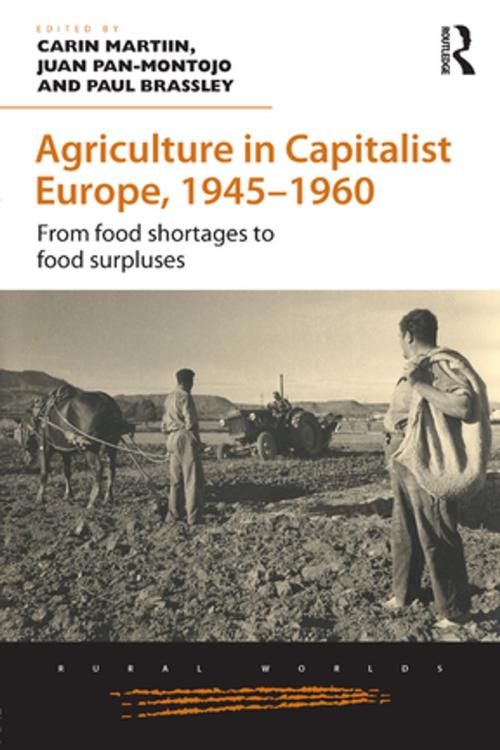Agriculture in Capitalist Europe, 1945–1960
From food shortages to food surpluses
Nonfiction, History| Author: | ISBN: | 9781315465913 | |
| Publisher: | Taylor and Francis | Publication: | June 17, 2016 |
| Imprint: | Routledge | Language: | English |
| Author: | |
| ISBN: | 9781315465913 |
| Publisher: | Taylor and Francis |
| Publication: | June 17, 2016 |
| Imprint: | Routledge |
| Language: | English |
In the years before the Second World War agriculture in most European states was carried out on peasant or small family farms using technologies that relied mainly on organic inputs and local knowledge and skills, supplying products into a market that was partly local or national, partly international. The war applied a profound shock to this system. In some countries farms became battlefields, causing the extensive destruction of buildings, crops and livestock. In others, farmers had to respond to calls from the state for increased production to cope with the effects of wartime disruption of international trade. By the end of the war food was rationed when it was obtainable at all. Only fifteen years later the erstwhile enemies were planning ways of bringing about a single agricultural market across much of continental western Europe, as farmers mechanised, motorized, shed labour, invested capital, and adopted new technologies to increase output. This volume brings together scholars working on this period of dramatic technical, commercial and political change in agriculture, from the end of the Second World War to the emergence of the Common Agricultural Policy in the early 1960s. Their work is structured around four themes: the changes in the international political order within which agriculture operated; the emergence of a range of different market regulation schemes that preceded the CAP; changes in technology and the extent to which they were promoted by state policy; and the impact of these political and technical changes on rural societies in western Europe.
In the years before the Second World War agriculture in most European states was carried out on peasant or small family farms using technologies that relied mainly on organic inputs and local knowledge and skills, supplying products into a market that was partly local or national, partly international. The war applied a profound shock to this system. In some countries farms became battlefields, causing the extensive destruction of buildings, crops and livestock. In others, farmers had to respond to calls from the state for increased production to cope with the effects of wartime disruption of international trade. By the end of the war food was rationed when it was obtainable at all. Only fifteen years later the erstwhile enemies were planning ways of bringing about a single agricultural market across much of continental western Europe, as farmers mechanised, motorized, shed labour, invested capital, and adopted new technologies to increase output. This volume brings together scholars working on this period of dramatic technical, commercial and political change in agriculture, from the end of the Second World War to the emergence of the Common Agricultural Policy in the early 1960s. Their work is structured around four themes: the changes in the international political order within which agriculture operated; the emergence of a range of different market regulation schemes that preceded the CAP; changes in technology and the extent to which they were promoted by state policy; and the impact of these political and technical changes on rural societies in western Europe.















